Keeping the Fire Burning
Seven-time X Games medalist and Olympian skier Maggie Voisin has officially retired from the U.S. Freestyle Ski Team after a decade-long career competing in slopestyle and big air while already making a name for herself in the ski filming industry at age 26
By Maggie Dresser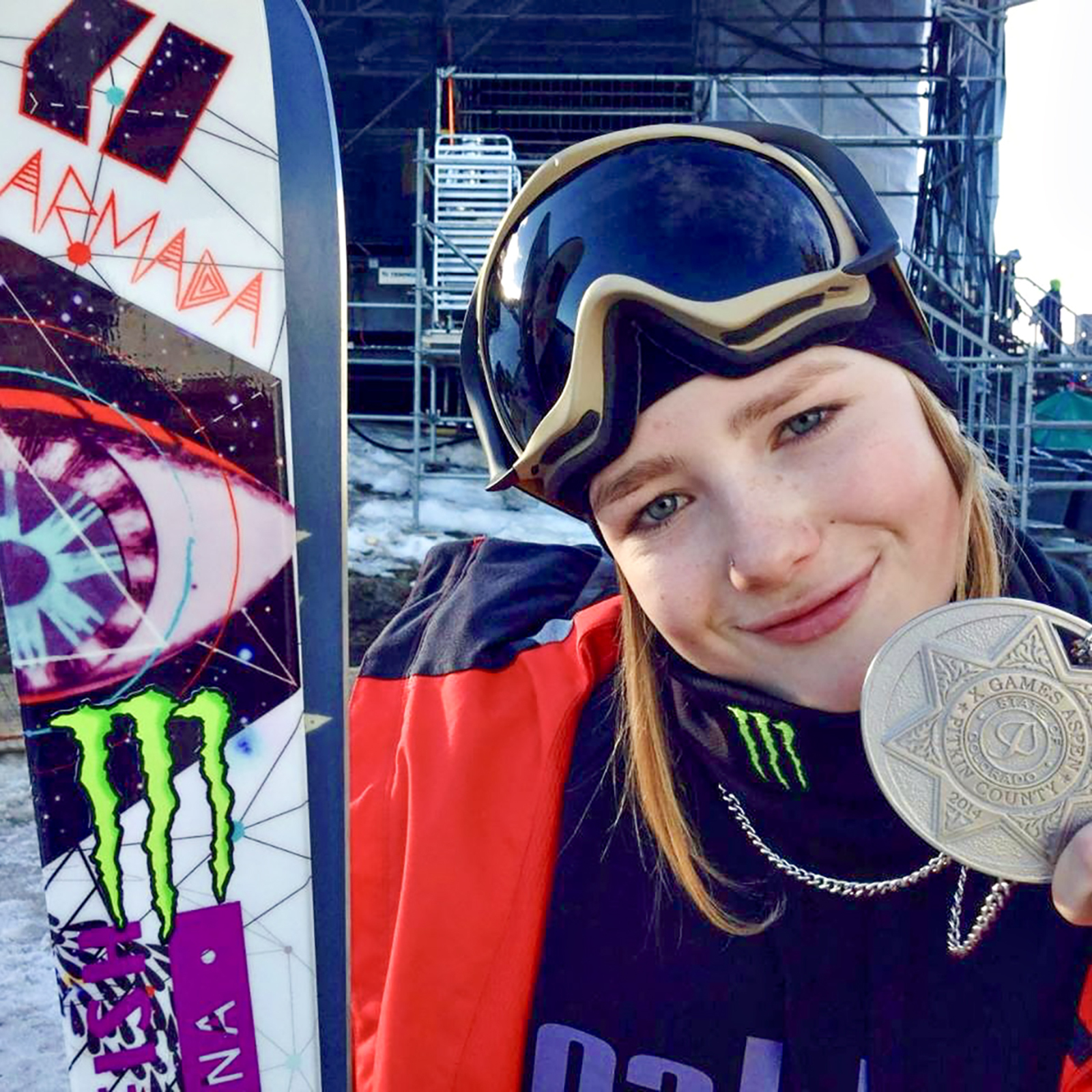
In the weeks before the final qualifier leading up to the 2022 Winter Olympic Games in Beijing, seven-time X Games medalist and Whitefish freestyle skier Maggie Voisin was coming back from a tough year when she tweaked her right knee. With four knee surgeries already under her belt by age 23, the minor setback made the freestyle veteran question the longevity of her career and wondered if she should call it quits after nearly a decade of injury comebacks. She wanted an Olympic medal, but she didn’t want failing body parts to end her career.
Voisin made it to Beijing where she competed in slopestyle and big air, but she returned home from her third and final Olympic Games empty-handed.
But Voisin doesn’t get hung up on results. After a year of physical and emotional setbacks, she chose to live up to a motto she’s lived by since joining the U.S. Freestyle Ski Team at age 14.
“That motto has never, ever changed,” Voisin said. “My motto has always been that all I can do is go out and ski the best I can and whatever happens, happens.”
After Beijing, Voisin continued to compete but only committed to the X Games and a few other high-profile events as she loosened her schedule to make room for backcountry skiing and filming in 2023. The following year, she officially announced her retirement from freestyle skiing, ending her 10-year career.
“My heart just wasn’t in it anymore,” Voisin said. “I wasn’t in love with the sport like I used to be and that was a really big sign.”
Voisin also wanted autonomy when it came to the next chapter in her life and despite the toll skiing had already taken on her body, she pushed through one more knee tweak before phasing out of competition entirely, proud to end her career on her own terms.
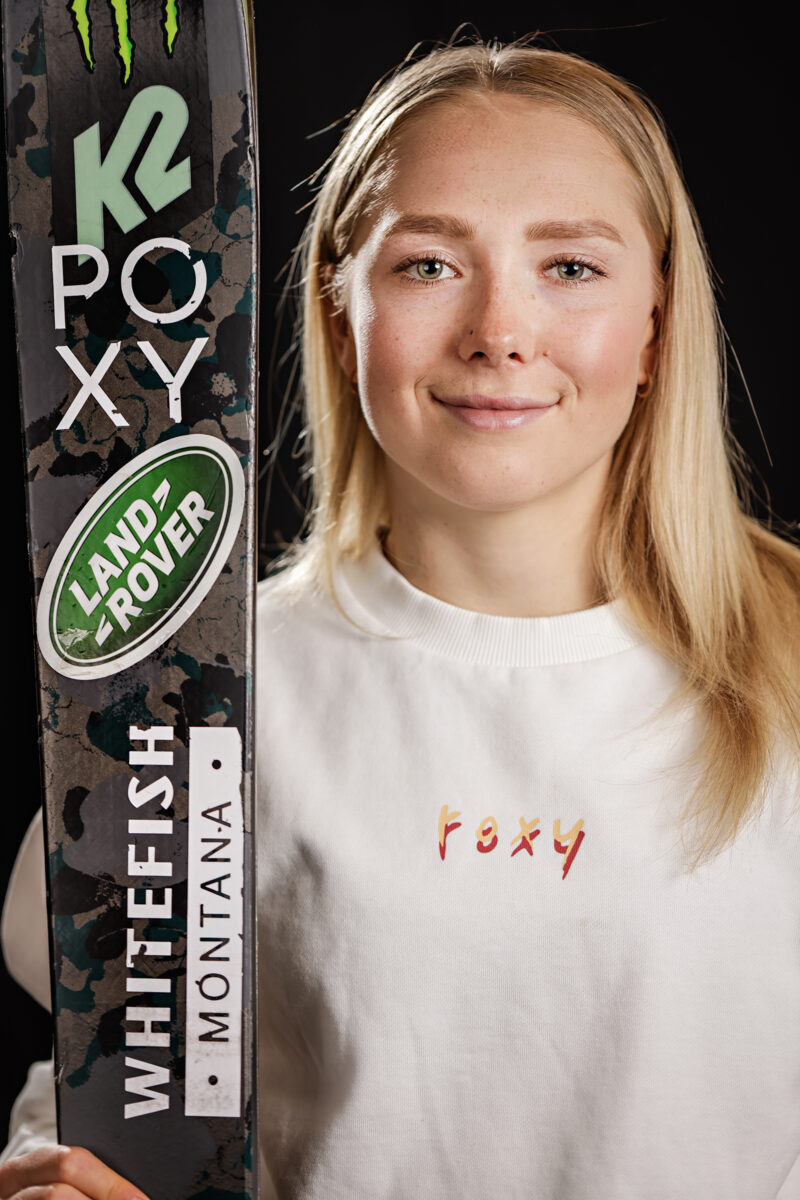
After a decade of rigid schedules, training camps across all seasons and hemispheres, podiums and five surgeries, the 26-year-old has made a full switch to the backcountry and she’s preparing for her third winter of filming with production company Teton Gravity Research (TGR). Instead of launching the competition season with her former teammates in Austria this fall, she’s in her hometown of Whitefish, waiting for the snow to fall.
“I wanted to give myself time to slow down,” Voisin said.
Voisin hasn’t had much time for slowing down since she moved to Park City, Utah, where the U.S. Ski and Snowboard Team is headquartered. Joining the rookie team at age 15, Voisin said she was constantly surrounded by her older teammates and coaches who called her “Baby Mags” through her teens. She grew up fast, however, and by the time she had her driver’s license, she was already living on her own with roommates.
Skogen Sprang, a head coach for the U.S. Freestyle Ski Team’s slopestyle and big air pro teams, met Voisin at a development camp when she was 14 and coached her on and off until the end of her career. He describes her as a daring athlete who has always been at the cutting edge of women’s skiing.
At age 15, Voisin won her first X Games medal in Aspen, Colo., placing second behind one of her idols, Canadian skier Kaya Turski. For Voisin, the early-career milestone was also a childhood dream come true. She also went to her first Olympics that year in Sochi, Russia, although she couldn’t compete after fracturing her ankle during a training run, an incident that launched a spate of injuries over the next decade.
Three years later, she won her first gold medal at the Aspen X Games in 2018 after coming back from an ACL injury – becoming the first American woman to win gold in slopestyle and marking one of many career highlights.
“It’s the only time competing that I knew I was going to win,” Voisin said. “It was this overwhelming emotion – I knew I would win when I found out I dropped last.”
Voisin clarifies that her feeling wasn’t fueled by arrogance. She describes it as an intuition after learning the randomly drawn run order placed her last in the lineup – meaning results would be announced right after she finished her run.
“I knew I was going to have my first victory lap – it wasn’t a cocky ‘I’m winning today,’” Voisin said. “It was something I’ve never, ever experienced.”
In South Korea, Voisin barely missed the podium at the 2018 Pyeongchang Winter Games, placing fourth in slopestyle, and she remained injury-free until 2019 when she realized she had been unknowingly skiing without her left ACL for most of the season. After diligent rehab in Park City that began that spring, she made a speedy recovery and was skiing just in time for the 2019-2020 winter.
“She’s amazingly tough,” Sprang said. “I’ve seen her go through multiple knee surgeries and ride that rollercoaster of injuries. She’s just always doing everything she can to put in the work to be back at the top while always being a team leader.”
Because of her recent injury, Voisin went into the 2020 season with a pressure-free attitude and podiumed at the first five events, winning gold in slopestyle and silver in big air at the Norway X Games while mining a bronze medal in slopestyle at the Aspen X Games.
But after hitting her stride in the first few months of 2020, life got complicated for Voisin. In addition to the pandemic ending everyone’s season early and a minor knee surgery that set her up for uncertain competition season, her 24-year-old brother, Michael, died by suicide in January of 2021.
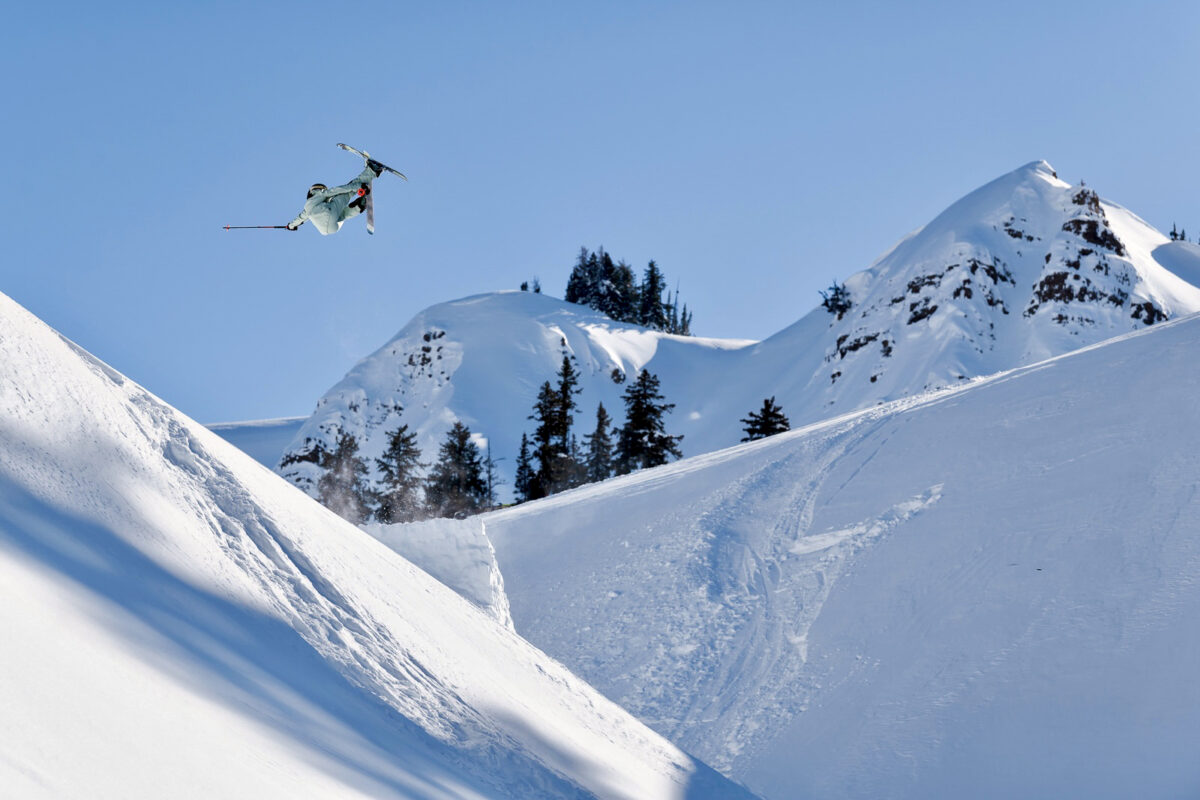
Devastated by the loss, Voisin headed home to Whitefish to grieve with her parents, Truby and Kristin, and her twin brother, Tucker, to process the shock. After an ashes-spreading ritual on Big Mountain with her family early that winter, she tried returning to her professional life but only made it to the Olympic qualifier before ending her season early again.
She went home.
“Life is so bizarre, and it feels so unfair,” Voisin said. “I realize for myself that perspective is everything and as long as I can keep a positive perspective, it keeps me moving forward. I’m so grateful that I’ve had that person in my life. That is how I get myself through the lowest of lows and the highest of highs. I’m constantly trying to see the light at the end of the tunnel.”
That perspective helped her through those lows, bringing her back for the 2021-2022 season with her eyes set on the Beijing Olympics.
After two years of on-and-off competing, Voisin returned to her third Games with a matured attitude – releasing the pressure she had historically placed on herself and simply feeling proud to be there. While she maintained focus on performing, she also stepped back to admire the evolution of her sport as athletes around the globe turned out to compete – a far cry from where it was in 2014 when slopestyle was first introduced.
“Two years after the Olympics, girls were really starting to push it and it put our sport on a worldwide level,” Voisin said. “It was crazy – by 2018, girls were doing doubles in their runs … to go back to 2014, you had a good idea of who was going to be on the podium. This day in age, I couldn’t tell you because the field is so deep.”
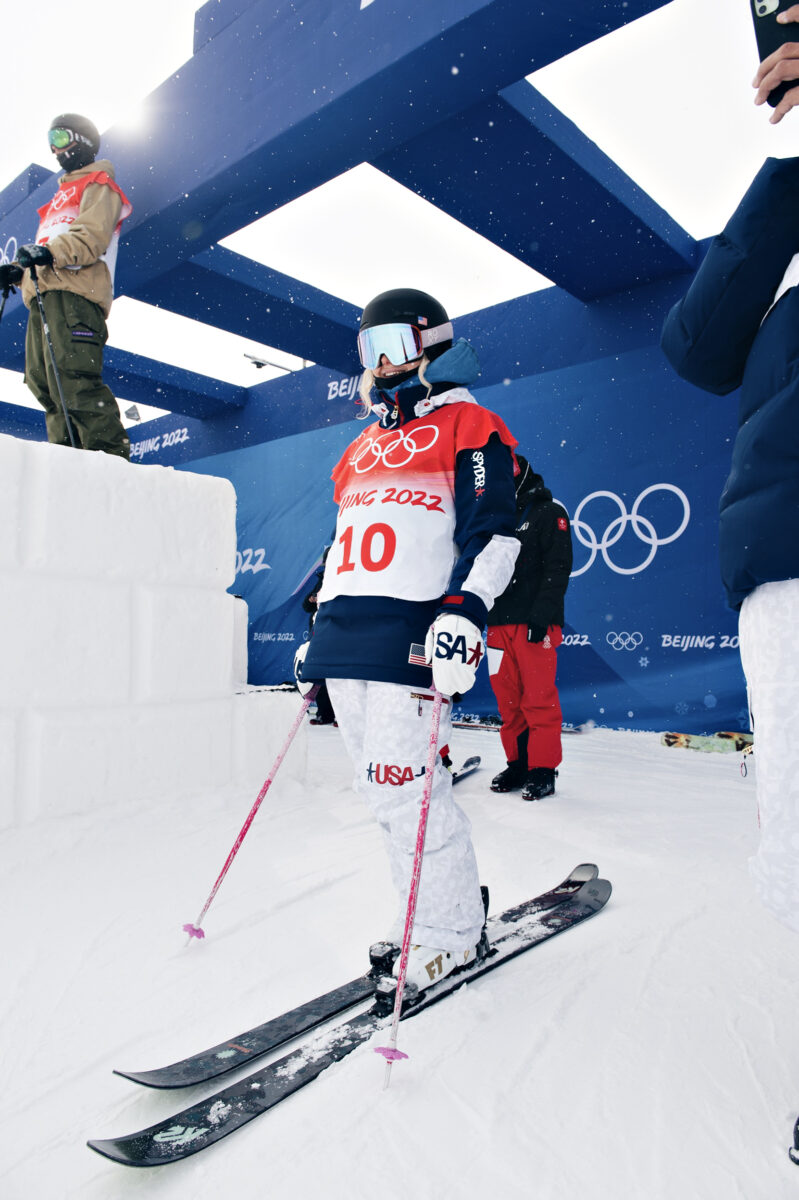
Dave Euler, a head coach for the slopestyle and big air pro teams on the U.S. Freestyle Ski Team, said the sport has grown tenfold since Voisin began her professional career. Until recent years, women in the sport weren’t doing the same tricks the men did like double 720s and switch 900s. Now, women are spinning in multiple directions midair and pushing the limits.
As Euler watched Voisin’s technical skills evolve during the six years he coached her, he also watched her grow into a team leader and mentor, embodying a positive role model for younger athletes.
“She’s a constant professional,” Euler said. “She’s such a great team leader for all of the girls coming up on our squad. She was always guiding them along and showing them how important the gym is and to take care of yourself.”
In Voisin’s last few seasons on the team, Euler saw her passion shift away from competing when she started dabbling in backcountry skiing and filming.
Sprang, too, saw Voisin’s passion transition. But while many professional athletes become burned out from the sport and move on from skiing, they both confirmed her fire for the sport was still burning.
“There are plenty of pro skiers that hang up the skis and move to the beach – they don’t have that lifelong passion,” Sprang said. “I really appreciate those athletes where it’s a lifestyle sport and to see her transition and really love skiing – it’s really cool to see.”
But not all freestyle athletes can translate specialized park skills to big mountain skiing. Sprang and Euler say it takes a well-rounded athlete, which they both attribute to Voisin’s childhood that entailed skiing on Big Mountain and riding dirt bikes with her dad and brothers.
“You’ve got to have that fire,” Sprang said. “There’s a certain skillset that transitions with park skiing and you have to be dedicated. It takes a special athlete to transition over.”
In 2023, Voisin filmed her first segment in TGR’s “Legend Has It” with her childhood friend Parkin Costain, who has been filming with the company since he was a teenager and has helped guide her through her new career. Growing up together in diapers and pushing each other on the Whitefish Mountain Resort Freestyle Team, the pair has reunited since Voisin’s retirement with plans to continue skiing together this winter.
“She fell straight into charging,” Costain said. “Growing up and skiing at Whitefish and chasing her dad and brothers around the resort – she already had it engrained in her.”
For Voisin, the eventual transition had always been part of her plan and even as a kid, backcountry skiing was always the dream. As she phased out of the competition circuit over the last few years, she wanted her body functional, not only to serve her through this next chapter, but for her lifetime.
Following her retirement announcement last summer, Voisin has fully committed to the backcountry, so much so that the thought of standing in a starting gate now gives her anxiety.
“What solidifies things more is the fact that with backcountry skiing, I’m not being judged – I just get to ski for me,” Voisin said. “I do what feels good on the snow and I pick lines that feel good to me and I’m not getting a score at the bottom – and I love that.”
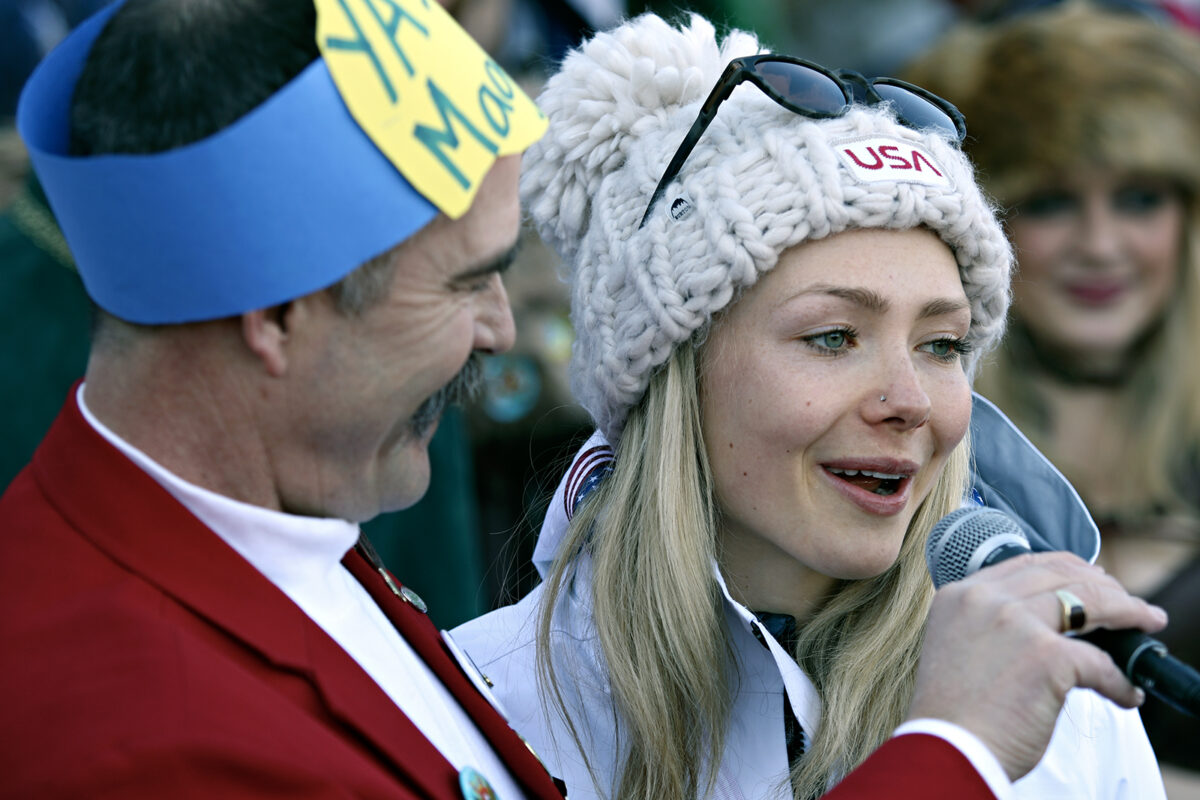
Historically, Voisin would be spending her days adhering to an inflexible training schedule and heading to her first training camp and competition for the season in Europe by November. But this fall, she’s living up retirement at home in Whitefish after a summer of climbing mountains in Glacier National Park and traveling to warm and tropical destinations on her own time. Instead of competing at the 2025 X Games, she will be a featured commentator for the second year.
Carving out time with her family at home in northwest Montana has always been a priority for Voisin, and as life slows down, she pauses and expresses a deep sense of gratitude for where skiing has taken her. As she’s healed the physical pain of broken bones and torn ligaments, the professional athlete continues to heal the emotional pain that followed when her brother died in 2021. While she admits it would have been easier to push Michael away due to the circumstances surrounding his death, she chose to keep him close. His memory maintains a presence in her and she makes it a point to live up to his legacy as a kind and passionate human.
“It still feels like yesterday – but it also feels like a long time ago,” Voisin said of his death. “It comes in waves but as time passes, the waves are farther and fewer between. There are still moments I want to live with him in my heart and I also feel that as I shift into this new career, I just want to give it everything I have because that’s the person my brother was. Not everyone is as privileged as I am and waking up and feeling grateful for the life I have to live – that’s something I try to remember each and every day. Part of that belief comes from my brother.”
As she moves through the grief, the injuries, and life’s setbacks, Voisin is taking care of herself and taking time to slow down after years of growing up fast. Without the pressure of podiums and Olympic medals, the retired freestyle athlete sees the big picture.
“Without skiing, I wouldn’t be who I am, and I have this sense that there’s more to life than skiing – but it makes me feel the most alive,” Voisin said.